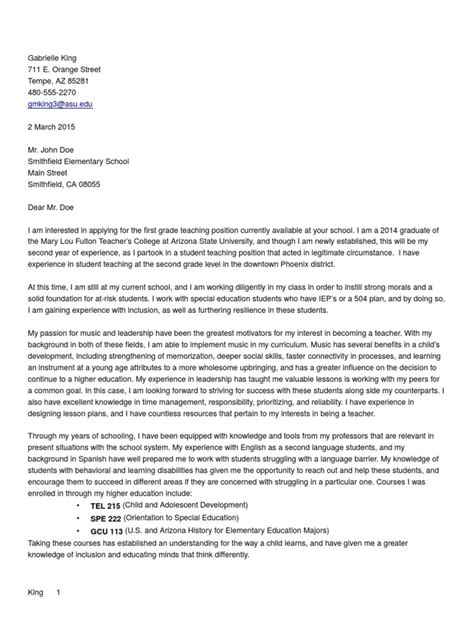Understanding Cover Letters: Inclusions & Importance

When searching for a job, one of the most important documents you’ll need is a cover letter. This document serves as a way to introduce yourself to potential employers and explain why you’re the best candidate for the job. Understanding what to include in your cover letter and why it’s important can make all the difference in landing your dream job.
What is a Cover Letter?
A cover letter is a one-page document that introduces yourself and your qualifications to a potential employer. It accompanies your resume and serves as an opportunity to explain why you’re a great fit for the job. It should be customized for each job you apply for, highlighting your relevant skills and experiences.
Why is a Cover Letter Important?
A cover letter is important because it gives you the opportunity to stand out from other applicants. It allows you to show your personality and explain why you’re a great fit for the job beyond what’s listed on your resume. A well-written cover letter can make a big difference in whether or not you get an interview.
What to Include in a Cover Letter
Heading
Your cover letter should include a heading with your name, address, phone number, and email address. This should be placed at the top of the page, aligned to the left.
Date and Employer’s Address
Beneath your heading, include the date and the name and address of the employer you’re applying to. This should be aligned to the left as well.
Salutation
Begin your cover letter with a formal salutation, such as “Dear Hiring Manager.” If you know the name of the person you’re addressing, use their name instead.
Introduction
Your introduction should explain why you’re writing, the position you’re applying for, and how you found out about the job. This is also a good opportunity to mention any mutual connections or previous interactions you’ve had with the company.
Body Paragraphs
Your body paragraphs should highlight your relevant skills and experiences. Use specific examples to show how you’ve demonstrated these skills in previous jobs or projects. It’s important to tailor each paragraph to the specific job you’re applying for.
Closing Paragraph
In your closing paragraph, summarize why you’re a great fit for the job and express your enthusiasm for the position. You can also mention that you look forward to the opportunity to further discuss your qualifications in an interview.
Closing Salutation
End your cover letter with a formal closing salutation, such as “Sincerely” or “Best regards.” Sign your name above your typed name.
Tips for Writing a Great Cover Letter
Do Your Research
Before writing your cover letter, research the company and the position you’re applying for. Use this information to tailor your cover letter and show that you’ve done your homework.
Keep it Concise
Your cover letter should be no longer than one page. Keep your paragraphs short and to the point.
Show Your Personality
Your cover letter should be professional, but it’s also an opportunity to show your personality. Use language that’s warm and engaging to make a connection with the reader.
Proofread
Before sending your cover letter, make sure to proofread it for errors. Have someone else read it over as well to catch any mistakes you might have missed.
Conclusion
A cover letter is an important part of the job application process. It gives you the opportunity to stand out from other applicants and explain why you’re the best candidate for the job. By following these tips and including the right information in your cover letter, you can increase your chances of landing your dream job.
FAQs
What’s the difference between a cover letter and a resume?
A cover letter is a one-page document that introduces yourself and your qualifications to a potential employer. It accompanies your resume and explains why you’re a great fit for the job. A resume is a document that outlines your work experience, education, and skills.
Do I need to include a cover letter with my job application?
It’s always a good idea to include a cover letter with your job application, even if it’s not required. A well-written cover letter can make a big difference in whether or not you get an interview.
What should I include in my body paragraphs?
Your body paragraphs should highlight your relevant skills and experiences. Use specific examples to show how you’ve demonstrated these skills in previous jobs or projects. It’s important to tailor each paragraph to the specific job you’re applying for.
